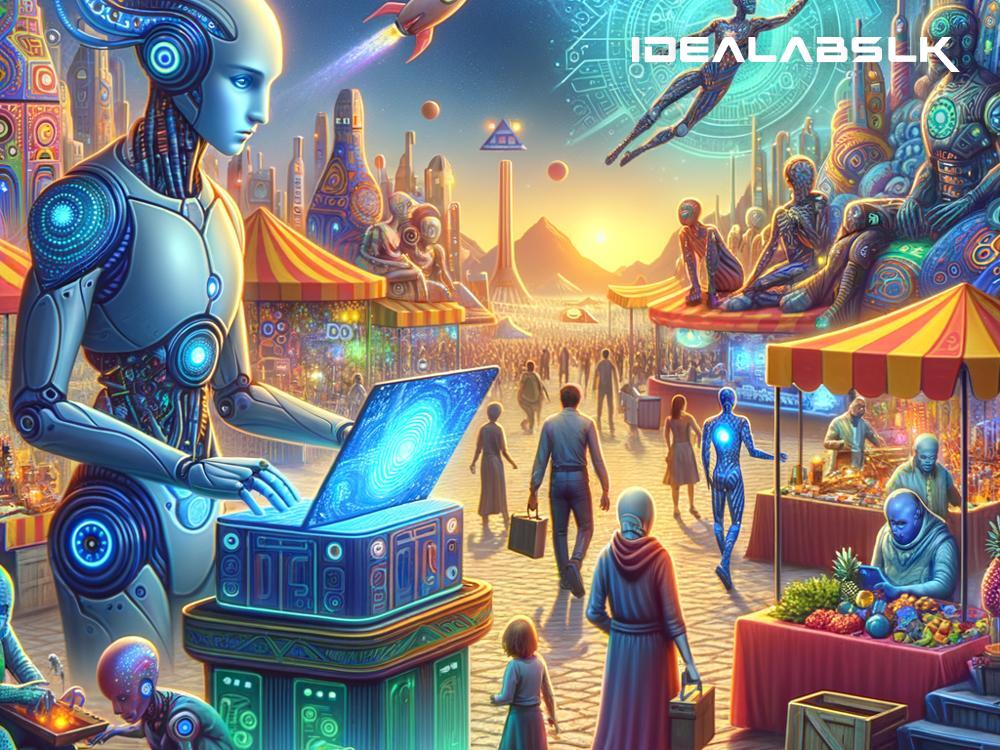As we rapidly approach the heart of the 2020s, the burgeoning presence of artificial intelligence (AI) has become impossible to ignore. This technology, once the cornerstone of science fiction, is now reshaping our daily lives in ways we could hardly have anticipated. One domain that stands on the brink of this AI frontier is online gaming, particularly within player-driven economies like those found in iconic games such as World of Warcraft. As we gaze towards 2025, let's explore how AI is set to redefine these virtual marketplaces, making them more immersive, dynamic, and perhaps, a bit more complex.
The Core of Player-Driven Economies
At their essence, player-driven economies are ecosystems within online games where players control the market. This means they can buy, sell, trade services and goods—everything from epic swords to rare ingredients needed for potent spells. These economies mimic real-world markets, with prices fluctuating based on supply and demand. They’re a fundamental part of making these game worlds feel alive, offering players a sense of agency and participation beyond combat or questing.
AI's Emerging Role
As AI continues to evolve, its integration into online games, specifically within these economies, is inevitable. By 2025, we're likely to see several ways AI will tangibly impact these virtual marketplaces.
Smarter NPCs
Non-Player Characters (NPCs) act as the game's static characters—shopkeepers, quest givers, or background personalities. With AI, these NPCs can become much more dynamic. Imagine entering a virtual shop where the NPC remembers you, comments on your last purchase, and even haggles based on your player history. This level of interaction enhances the realism of the game world, making economic transactions more engaging.
Predictive Pricing
AI can analyze vast amounts of data, including player behavior and market trends, to dynamically adjust prices in the game's economy. This means if a particular item becomes too common, its value might decrease, whereas rare items could see a spike in prices. Such a system would mimic real-world economic principles more closely, deepening the strategy involved in trading and encouraging players to become savvy market watchers.
Automated Trading Systems
Players often spend a significant amount of time managing their in-game assets. By 2025, AI could introduce automated trading systems that allow players to set parameters for buying and selling, much like stock trading apps in the real world. This automation would let players focus more on gameplay and less on micromanaging their inventories, potentially widening the appeal of these games to a broader audience.
Fraud Detection and Market Stability
Fraud and market manipulation have sometimes troubled player-driven economies. With sophisticated AI algorithms, these issues could be detected and mitigated more effectively. AI can monitor for unusual trading patterns that suggest fraudulent activity, ensuring a level playing field for all players and maintaining the integrity of the in-game economy.
Creating New Economic Opportunities
Finally, AI could foster entirely new types of economic interactions in games. For instance, AI-driven events could dynamically create supply and demand shifts, challenging players to adapt their economic strategies on the fly. Moreover, AI could facilitate the design of unique, personalized quests that reward players with rare items or in-game currency, further enriching the player-driven economy.
Looking Ahead
As we look to 2025, it's clear that AI will significantly impact player-driven economies in online games like World of Warcraft. These advancements promise to make virtual markets more vibrant and engaging, reflecting the complexity of real-world economics while enhancing the overall gameplay experience. Players can look forward to participating in these evolving digital economies, enjoying both the challenges and opportunities they present.
However, it's worth noting that with these advances come considerations about balance, fairness, and the importance of keeping the human element central in these virtual worlds. Game developers will need to tread carefully, ensuring that AI serves to enhance player experience without overshadowing the human creativity, strategy, and interaction that lie at the heart of these communities.
In sum, the fusion of AI and online gaming holds boundless potential—not only for creating more lifelike and immersive worlds but also for redefining what it means to engage in a player-driven economy. As we inch closer to 2025, one thing is certain: the future of gaming looks nothing short of extraordinary.

